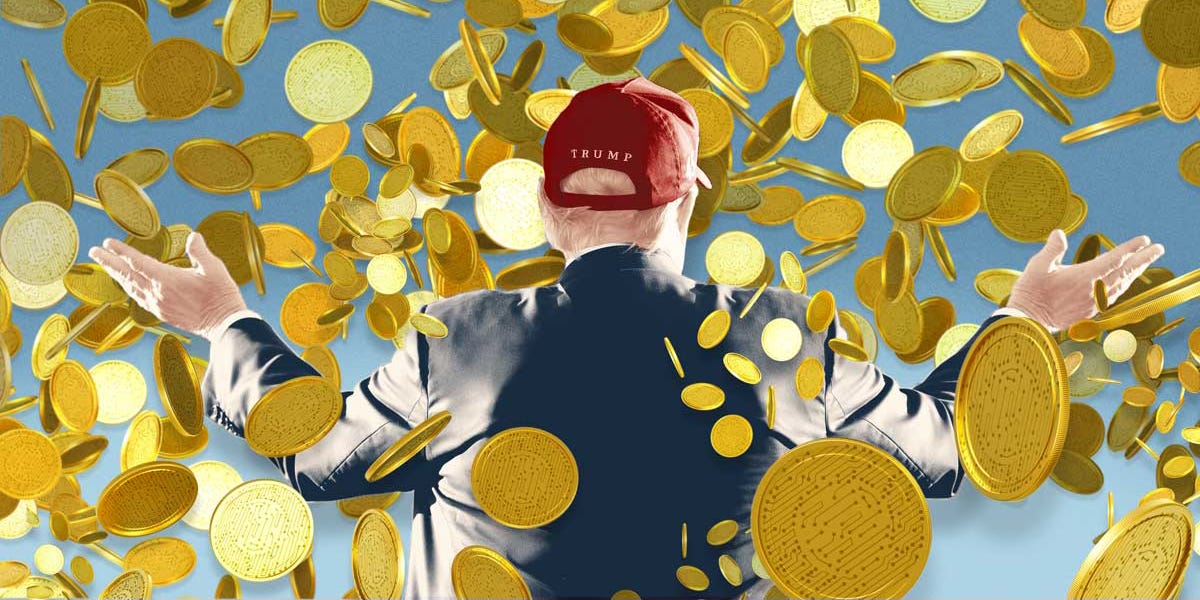Scott
Verified User
I'd considered copying the name of an article I read on the subject, but I changed my mind, as the article title sounds more optimistic than I can believe. That being said, I do think it is cause for -some- optimism, just of the more guarded variety. Here's the article I read:

 www.thefp.com
www.thefp.com
Quoting the introduction and the conclusion of the article below:
**
This week, Congress will vote on crypto legislation that paves the way for a new era of financial freedom.
07.14.25 — Tech and Business
I'm not an old man, but when it comes to crypto, I’ve seen a lot. I’ve been involved with cryptocurrencies since 2010 and have taught a course on digital currencies at NYU for nearly a decade. Over that time, I’ve seen booms and busts, scandals and arrests, and an ever-rotating cast of crypto heroes and villains. Bitcoin is now at an all-time high—$120,000 as of this writing—but price isn’t the real story. The real story is that bitcoin changed the nature of money forever.
None of the wild stories—from the rise and fall of Sam Bankman-Fried to the shutdown of drug market Silk Road—alter the fundamental dynamics that have been in place since the birth of crypto on January 3, 2009, when Satoshi Nakamoto launched the Bitcoin network. In a society that was trending toward more central control, and less freedom and privacy, the invention of bitcoin gave birth to a new era of financial freedom in this country.
But this year will be different. That’s because the federal government is poised, for the first time, to enact broad legislation that deals exclusively with crypto. And that watershed moment could come as soon as this week, which Republicans have dubbed “Crypto Week” in the House of Representatives.
[snip]
For some, cryptocurrency is a quirky fad like Beanie Babies or a glorified Ponzi scheme, and it is inconceivable to have cast your vote on this issue. But for the 65 million Americans who own cryptocurrency, it is not a curiosity but an important political and economic statement. Much like the internet, cryptocurrency can be used for illicit purposes. But also much like the internet, cryptocurrency is a powerful tool—it enables citizens to combat everything from inflation to financial surveillance and censorship. And on this important issue, Trump has governed exactly how he said he would: as a president who supports a technology that might not be good for the federal government, but it is certainly good for the country.
**

Bitcoin Hits $120K. The Real Story Isn’t the Price—It’s Who Controls Your Wallet.
This week, lawmakers in Washington will vote on crypto legislation that paves the way for a new era of financial freedom, writes Max Raskin.
Quoting the introduction and the conclusion of the article below:
**
This week, Congress will vote on crypto legislation that paves the way for a new era of financial freedom.
07.14.25 — Tech and Business
I'm not an old man, but when it comes to crypto, I’ve seen a lot. I’ve been involved with cryptocurrencies since 2010 and have taught a course on digital currencies at NYU for nearly a decade. Over that time, I’ve seen booms and busts, scandals and arrests, and an ever-rotating cast of crypto heroes and villains. Bitcoin is now at an all-time high—$120,000 as of this writing—but price isn’t the real story. The real story is that bitcoin changed the nature of money forever.
None of the wild stories—from the rise and fall of Sam Bankman-Fried to the shutdown of drug market Silk Road—alter the fundamental dynamics that have been in place since the birth of crypto on January 3, 2009, when Satoshi Nakamoto launched the Bitcoin network. In a society that was trending toward more central control, and less freedom and privacy, the invention of bitcoin gave birth to a new era of financial freedom in this country.
But this year will be different. That’s because the federal government is poised, for the first time, to enact broad legislation that deals exclusively with crypto. And that watershed moment could come as soon as this week, which Republicans have dubbed “Crypto Week” in the House of Representatives.
[snip]
For some, cryptocurrency is a quirky fad like Beanie Babies or a glorified Ponzi scheme, and it is inconceivable to have cast your vote on this issue. But for the 65 million Americans who own cryptocurrency, it is not a curiosity but an important political and economic statement. Much like the internet, cryptocurrency can be used for illicit purposes. But also much like the internet, cryptocurrency is a powerful tool—it enables citizens to combat everything from inflation to financial surveillance and censorship. And on this important issue, Trump has governed exactly how he said he would: as a president who supports a technology that might not be good for the federal government, but it is certainly good for the country.
**


